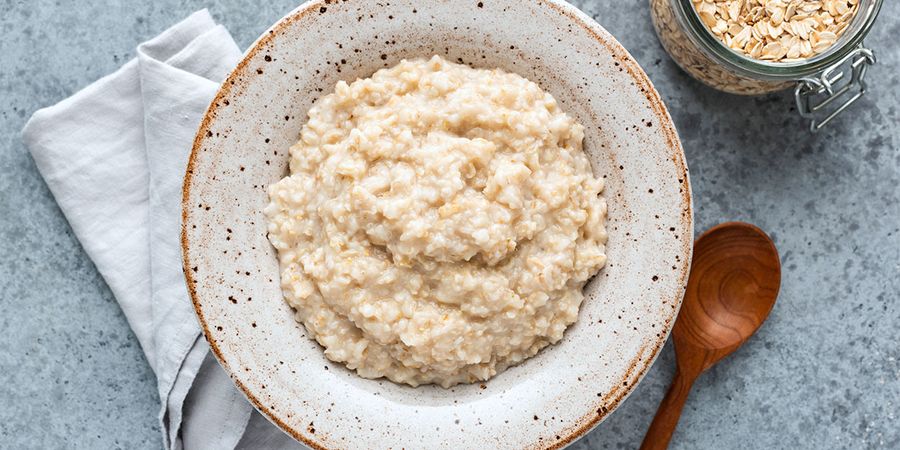The prices of some staple foods, including cheddar cheese, have gone up by as much as 80 per cent over the past year, according to research from Which?.
In March, the consumer champion analysed the impact of inflation on over 26,000 food and drink items at Aldi, Asda, Lidl, Morrisons, Ocado, Sainsbury’s, Tesco, and Waitrose.
Staple foods
It found that, on average, the price of cheddar cheese increased by 28 per cent in the three months to March compared to the previous year. However, Dragon Welsh Mature Cheddar 180g at Asda saw its price jump by 80 per cent from £1 to £1.80.
While sliced white bread prices have gone up by an average of roughly 30 per cent, Asda's Soft White Medium Sliced Bread 800g went from 56p to 94p – an increase of 67 per cent.
Asda said that it is working hard to "keep prices in check" despite global inflationary pressures.
The price of porridge oats has soared by an average of nearly 36 per cent, with the worst example at Ocado where its Quaker Oat So Simple Protein Porridge Pot Original 49g went from 94p to £1.56 – an increase of almost 66 per cent.
An Ocado spokesperson told Which? that it continues to support its customers by investing in price across branded and own-branded products.
Food and drink
Overall, supermarket food and drink prices are on the rise, increasing by just over 17 per cent in March compared to last year's numbers.
Supermarket own-label budget items, which are still the cheapest overall, saw an average price increase of nearly 25 per cent in March, more than the standard supermarket own brand prices which were up by nearly 21 per cent.
Inflation by supermarket
Lidl had the highest rate of inflation out of all eight supermarkets, jumping by 25 per cent. Aldi was close behind with an increase of nearly 24 per cent, while Morrisons came in at third place with an increase of 18 per cent.
Which? said that Aldi, Lidl, and Morrisons declined to give formal comment on their prices increases.
Asda prices were up on average by 17.5 per cent, Sainsbury’s by 15 per cent, and Tesco and Waitrose by just over 14 per cent.
Ocado saw the lowest annual average inflation increase, at just 10.7 per cent.
Sainsbury's said that it was working hard to keep prices low.
A Waitrose spokesperson said that no retailer is immune to increased prices for dairy given that it is one of the categories most impacted by inflation.
"We’re working hard to keep our prices as low as possible, whilst paying our farmers and suppliers fairly, and maintaining high animal welfare standards," they added.
Tesco did not respond to Which?'s request for comment.
“Our latest supermarket food and drink tracker paints a bleak picture for the millions of households already skipping meals of how inflation is impacting prices on supermarket shelves, with the poorest once again feeling the brunt of the cost-of-living crisis,” said Sue Davies, Which? head of food policy. “While the whole food chain affects prices, supermarkets have the power to do more to support people who are struggling, including ensuring everyone has easy access to basic, affordable food ranges at a store near them, particularly in areas where people are most in need.”
Latest News
-
Waitrose to roll out electronic shelf labels across all stores
-
John Lewis to open 3 in-store hospitality spaces
-
Heineken launches WhatsApp tech that swaps voice notes for real conversation
-
Coach, Kate Spade and Urban Outfitters amongst retailers to use new agentic commerce technology
-
Uber Eats and Starship Technologies launch robot deliveries in Leeds
-
Carrefour launches new pop-up store concept in Belgium
Beyond Channels: Redefining retail with Unified Commerce
This Retail Systems fireside chat with Nikki Baird, Vice President, Strategy & Product at Aptos will explore how unified commerce strategies enable retailers to tear down these barriers and unlock new levels of operational agility and customer satisfaction.
The future of self-checkout: Building a system that works for consumers and retailers
In this webinar, industry leaders discussed what the future of self-checkout looks like and how retailers can make the technology work for everyone.
© 2024 Perspective Publishing Privacy & Cookies












Recent Stories